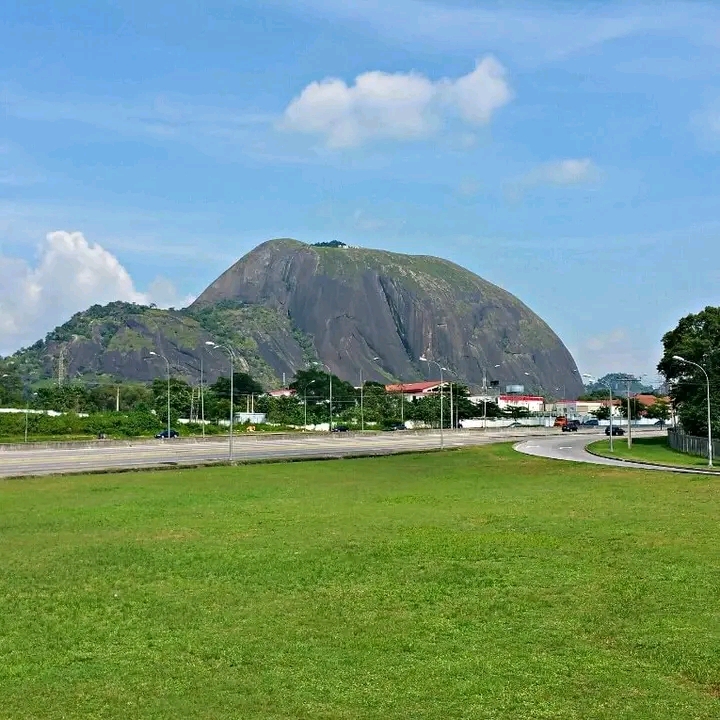
Experience Vibrant Traditions at the Federal Capital Territory Cultural Festival in New Karu
Dive into the vibrant heritage of Nigeria at the Federal Capital Territory Cultural Festival in New Karu. Experience authentic music, dance, and crafts while exploring a lively gathering that connects tradition with community spirit.
Stay Hydrated Throughout the Day
The festival takes place outdoors with high energy and often warm temperatures, so carry a water bottle and sip regularly to stay refreshed.
Wear Comfortable, Sturdy Footwear
Expect a mix of paved and dirt surfaces. Shoes with good grip will help navigate crowded and sometimes uneven ground.
Arrive Early for Better Viewing Spots
Popular performances draw crowds; arriving early secures prime spots and gives time to explore the surrounding crafts markets.
Respect Local Customs and Performers
Photography is welcome but always ask for permission before taking close-up pictures or videos of performers and attendees.
Experience Vibrant Traditions at the Federal Capital Territory Cultural Festival in New Karu
The Federal Capital Territory Cultural Festival in New Karu offers visitors a dynamic blend of tradition, music, food, and crafts against the backdrop of Nigeria's rich cultural fabric. This annual event brings together ethnic groups from across the region in a vibrant showcase of dance performances, storytelling, and colorful attire, creating an immersive glimpse into local heritage.
Held in New Karu, just outside Abuja, the festival is easily accessible while offering a refreshing escape from the city’s bustle. Alongside stage events, market stalls burst with artisans selling handmade wares, from woven fabrics to carved woodwork, inviting visitors to engage directly with local craftspeople. The lively rhythms of drums and flutes weave through the air, daring you to join in the spirited dances.
Planning your visit requires some groundwork: the festivities usually span several days, with performances and activities starting mid-morning and often continuing well into the evening. Keep hydration a priority; the tropical climate can swiftly sap your energy, especially when moving around crowded spaces.
Footwear should be sturdy but comfortable, as the festival grounds alternate between paved areas and uneven dirt tracks. Consider timing your visit to coincide with the cooler morning or late afternoon slots when the sun withdraws to give sharper views of the colorful crowds and open-air stage performances. Cameras are a must-have, but please respect requests for privacy from performers and participants.
New Karu itself offers engaging side opportunities. Short walks along nearby rural paths reveal views of the Federal Capital Territory’s rolling landscapes and vibrant village life. The environment here remains fiercely alive with local birdsong and the occasional river daring you to explore its banks.
Whether you’re a cultural enthusiast or a curious traveler, this festival promises a grounded yet exhilarating adventure into Nigeria’s cultural heart. By preparing adequately, remaining flexible, and engaging openly with performers and locals, you’ll find the Federal Capital Territory Cultural Festival an enriching chapter of your travel story.
Nearby Trips
All Adventures
Boat Charters
Water Activities
Adventures near New Karu, Federal Capital Territory
Discover the unique and memorable adventures that make New Karu, Federal Capital Territory special.
Frequently Asked Questions
What is the best way to get to New Karu for the festival?
New Karu is easily reachable by road from Abuja, approximately 45 minutes away. Public transport options like shared taxis are available, but for convenience and comfort, booking a private car or ride-sharing is recommended.
Are there any lesser-known spots within the festival grounds worth exploring?
Yes, aside from main performance stages, the traditional craft villages and food stalls at the festival’s edges offer quieter spaces to watch artisans at work and try authentic dishes away from the crowds.
What local wildlife might visitors encounter around New Karu during the festival?
The surrounding areas harbor birds such as the African grey hornbill and weaver birds, whose morning choruses add a natural soundtrack. Small mammals occasionally slip through nearby trees, reminding visitors nature remains near.
How does the festival reflect the cultural diversity of the Federal Capital Territory?
The festival brings together ethnic groups such as the Gbagyi, Bassa, and Eggon, each showcasing their unique dances, costumes, and cuisines, reinforcing the region’s mosaic of cultural identities through shared celebration.
Is it possible to purchase handmade crafts directly from local artisans?
Absolutely. Many artisans sell directly at festival markets, offering an interactive shopping experience where you can learn about the craft and negotiate prices.
Are there any environmental concerns visitors should be mindful of during the festival?
Attendees are encouraged to minimize plastic use, dispose of waste properly, and respect natural surroundings by sticking to designated walkways to help preserve the local environment.
Recommended Gear
Water Bottle
Stay hydrated amidst the tropical heat by carrying refillable water.
Comfortable Shoes
Durable footwear helps navigate mixed terrain and long hours of standing or walking.
Sunhat or Cap
Protect yourself from direct sunlight during daytime events.
Light Rain Jacket
Be prepared for occasional rain showers without adding bulk.
Local Insights
Hidden Gems
- "Small performance circles where local storytellers share folklore in intimate settings"
- "Shaded courtyards featuring impromptu drum circles away from main stages"
Wildlife
- "African grey hornbill"
- "Weaver birds"
- "Monitor lizards in peripheral park areas"
History
"New Karu’s cultural festival began as a grassroots event to unify the region’s diverse ethnic groups, evolving into a recognized celebration supported by Federal Capital Territory authorities, reflecting decades of community collaboration."
